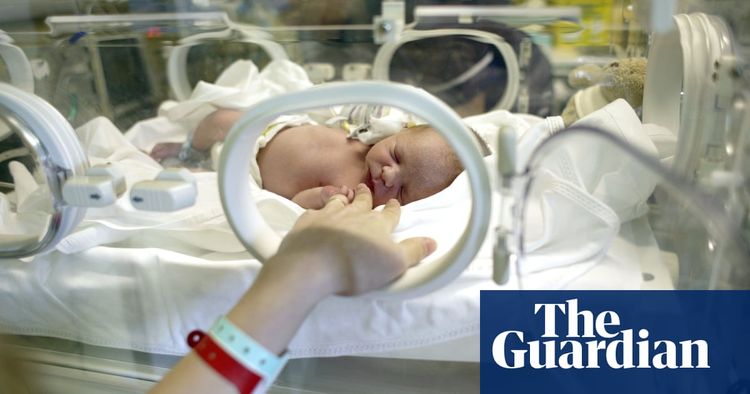Vaccine could cut RSV hospital admissions in babies by 80%, study finds

A recent study discovered that a vaccine could significantly decrease the amount of babies and toddlers that are hospitalized with respiratory syncytial virus (RSV) by up to 80%, which is an extraordinary result.
A research article was released on the New England Journal of Medicine, which studied 8,058 babies who were healthy and aged 12 months or younger from the UK, France and Germany. This study was conducted to analyze their response to the first RSV season.
Out of this bunch, 4,037 newborns were chosen at random to be given the nirsevimab vaccine, and 4,021 infants got the usual care.
According to the study, only 11 infants (0.3%) who were given the vaccine had to be hospitalized, while 60 babies (1.5%) needed hospitalization after receiving only traditional care.
Scientists have declared that after conducting a trial, they've found out that the vaccine nirsevimab diminishes the probability of hospitalization from six in every 1,000 previously healthy infants to just one in every 1,000 previously healthy infants who have taken the vaccine. Therefore, it has been seen that the vaccine is 83.2% effective.
The study received financial support from Sanofi and AstraZeneca.
RSV is a prevalent respiratory infection that impacts infants and toddlers. Fall marks the beginning of RSV season and it persists until the following spring.
Despite causing symptoms that are similar to the common cold, RSV can pose more serious threats to certain infants and result in complications such as bronchiolitis and pneumonia.
RSV is a common reason for infants being hospitalized in England, affecting nearly 31,000 kids aged four and below annually. This virus is a contributor to various conditions that are attributable to pediatric hospital admission. Sadly, it results in the death of around 20 to 30 babies every year in the UK alone. On a global scale, this virus causes 100,000 deaths per year, affecting children who are under five years of age.
In November 2022, the Medicines and Healthcare products Regulatory Agency gave the green light for Nirsevimab to be used in the UK. However, it is currently not part of any vaccination program.
Calum Semple is a professor who specializes in children's health and outbreak medicine at the University of Liverpool. He is also a respiratory consultant at Alder Hey children's hospital. He expressed his approval of the trial's outcome, describing it as "splendid."
He stated that tens of thousands of babies in the UK experience discomfort due to the respiratory syncytial virus during their first year of life. The virus often results in an unpleasant cold, accompanied by heavy nasal discharge and ear pain in babies. However, it can escalate to bronchiolitis, which is a severe illness characterized by challenges in feeding, dehydration, and chest infections that warrant hospital admission. Moreover, it may lead to respiratory failure requiring intensive care.
During the winter season, there is a rise in the number of infants being admitted for bronchiolitis due to RSV infection. This puts a lot of strain on the resources and staff of children's health services.
We now have a one-time shot called nirsevimab that has been shown to work really well for healthy babies. Perhaps it's a good idea for the United Kingdom to expand the program for immunizing babies against RSV all year round, in order to spare them from the suffering caused by bronchiolitis. This will also help ease the strain on hospitals.
According to Dr Simon Drysdale, who is a co-leader in the study and a consultant pediatrician at St George's University Hospital, RSV is an incredibly contagious infection that causes a lot of babies to have issues with breathing and eating. Every year, there are a ton of babies who end up in the hospital during the winter, which is really upsetting for families and puts a big strain on the NHS. However, this new study is really important because it shows the potential impact of using a monoclonal antibody injection to help with RSV, and how safe it could be for patients.













































